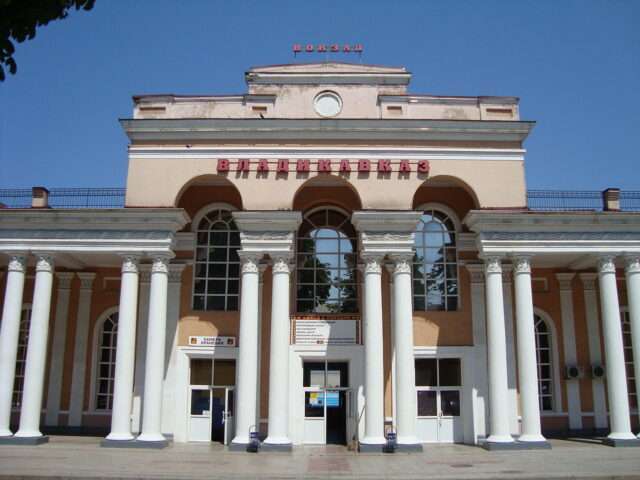
The recent attempt to organise a terrorist attack in Vladikavkaz highlighted that the North Caucasus had not defeated local and international terrorism, and jihadist organisations are still a severe threat in the region.
The Russian Federal Security Service (Federal’naja sluzhba bezopasnosti Rossijskoj Federacii – FSB) reported that security forces prevented a terrorist attack in the city of Vladikavkaz, the capital of the Republic of North Ossetia – Alania located in the North Caucasus.[1]
According to the information released by the FSB press service, the local security forces arrested an alleged militant of the Islamic State accused of preparing a violent attack (explosion) in Vladikavkaz and planning to escape to the Middle East to fight among the ranks of the terrorist organisation. The man is a Russian citizen born in 1990 who wanted to detonate an improvised explosive device (IED) against an administrative building.
During the arrest, FSB officers found components of the device in the detainee’s cache and correspondence with Islamic State militants who were abroad. Security forces opened a case under part 2 of article 205.5, ‘Participation in the activities related to a terrorist organisation’ and probably part 3 of article 30 and part 1 of article 205 on the ‘Attempt of organising a terrorist attack’ of the Russian criminal code.
Islamic State threat in Russian North Caucasus
The arrest of the alleged Islamic State militant underlines how serious the threat of jihadist propaganda in the Russian language is because it might ‘win the heart’ of Russian citizens from different ethnic and religious backgrounds.[2]
Even though the Russian Federation has heavily fought terrorism on its territory and abroad, as demonstrated by this event, the North Caucasus remains one of the most troublesome regions of the country where jihadist propaganda and militancy might find fertile ground for recruitment activities.
Albeit the city of Vladikavkaz and the republic of North Ossetia-Alania cannot be considered jihadist or militant hotspots and terrorism and jihadist organisations have more affected neighbouring countries such as Dagestan, Chechnya, Ingushetia, and Kabardino-Balkaria, FSB arrest should alarm local security forces regarding the impact of Islamic State propaganda in the area.
Although terrorism and violent attacks are not very common in North Ossetia-Alania, local people cannot forget that in 2004 School N.1 of Beslan became the theatre of a terrorist operation by a Chechen commando. The episode ended with the deaths of 333 people, 186 children, and 31 of the attackers.[3]
Preventing terrorist attacks and the spread of jihadist propaganda is a fundamental goal for the Kremlin and local authorities to avoid regional tensions and the confrontation between Muslims and non-Muslims who live in the North Caucasian republics. On the other hand, the recent FSB arrest stressed that jihadist propaganda in the Russian language might reach the entire North Caucasus and cause tension in the region.
Sources
[1] RBC (2020) ФСБ предотвратила теракт во Владикавказе. Link: https://www.rbc.ru/society/30/06/2020/5efaddb59a79478176bd9c9c
[2] Garaev Danis (2018) The ideology of Russian-language jihadism before ISIS: treating the Soviet past as the origin of post-Soviet radicalism, State, Religion and Church, vol. 5, no. 1, pp. 82-106.
[3] C. J. Chivers, Steven Lee Myers (2004) Insurgents Seize School in Russia and Hold Scores, The New York Times. Link: https://www.nytimes.com/2004/09/02/world/europe/insurgents-seize-school-in-russia-and-hold-scores.html?pagewanted=2
Author: Giuliano Bifolchi
